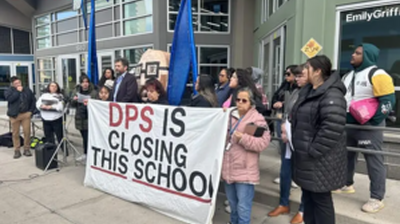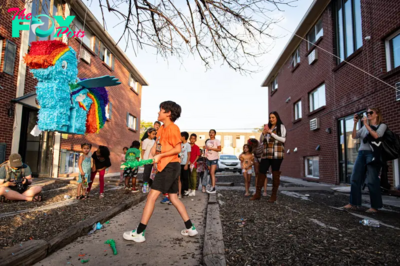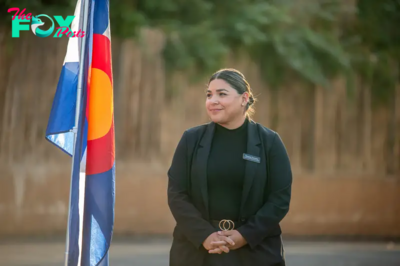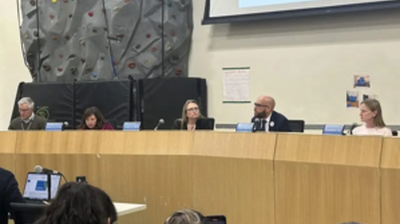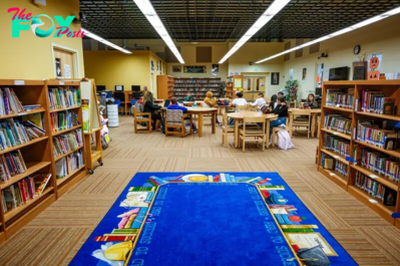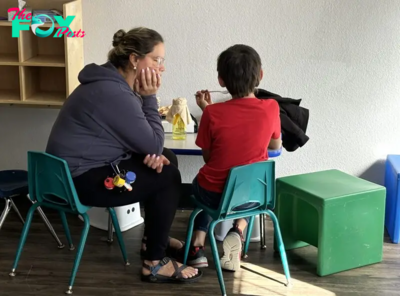Education
Colorado students and educators spar over cellphone bans in schools
In the last years of Jill Haffley’s teaching career, her lessons were increasingly punctuated by the buzz of a text message, sometimes even a “cacophony of noises” as students’ cellphones erupted with rings and dings.
Those weren’t the only disruptions or distractions in her classes. Some of her students would tune into a Netflix show or YouTube videos. Others played video games. All on their cellphones, heads bent down.
She also remembers teens who would ask to go to the bathroom during class, where they would meet a friend to record TikTok videos.
“There was no sanctity to the classroom anymore,” said Haffley, who was elected to Colorado Springs School District 11’s school board in November and campaigned on a platform to rid schools of rampant cellphone use.
District 11 is one of a growing number of Colorado districts cracking down on students using cellphones during class and, in some cases, even during lunch and passing periods. Cellphone bans in schools have also flared up in debates across the country as teachers fight for students’ attention in the age of Snapchat, Instagram and rapid-fire texting. Devices in the hands of teens are often thought of as little more than distractions that divert their gaze to social media posts or chats about weekend plans — or shortcuts that give them a sneaky way to look up answers for a test.
There’s another side to the technology: a communication portal at a time students’ sense of school safety has been fractured through repeated security threats, school shootings and hoaxes.
Officials in District 11 say the district charged forward with a cellphone ban in schools this year largely to reinforce student safety, especially during emergencies when students might whip out their phones and begin exchanging information that has yet to be verified.
“The spread of misinformation that can happen with cellphones in the time of an emergency can be pretty dangerous,” district spokesperson Jessica Wise told The Colorado Sun. “It instills a panic that shuts us down from following the protocols, from listening and being attentive where we need to be.”
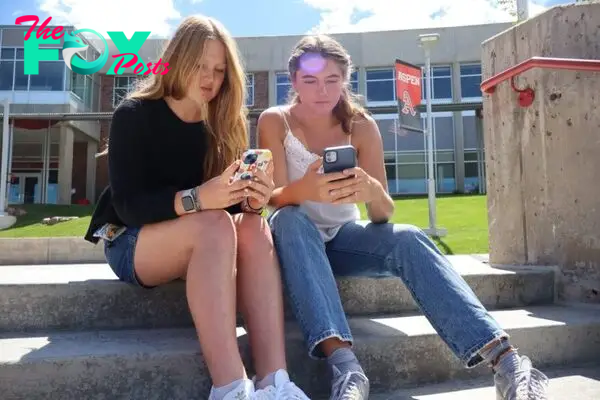
The district of about 22,700 students in preschool through high school has never enforced a districtwide cellphone policy. Attitudes toward cellphones have varied among individual schools and classrooms.
Now, district officials are imposing stricter rules after the board voted in June to adopt a cellphone ban based on input from the community and board work sessions. Elementary school students must keep cellphones and smartwatches in their backpacks at all times. Middle and high school students must tuck their phones and other smart devices into a magnetized pouch — called a Yondr pouch — that locks itself. As they arrive at school each day, students secure their phone inside their pouch and show it to security officers, Wise said.
Staff will confiscate the phones of students caught using their devices during school hours and return them at the end of the day. Students can face suspension if they violate the new rules more than once.
Students can unlock their pouches using unlocking stations when they leave school for field trips, internships or lunch. But they will not be able to access their phones during passing periods or during lunch in the cafeteria.
“We want kids to succeed,” said Haffley, the teacher-turned-school board member. “And one of the ways to do that is to tighten up attendance, tighten up behavior and certainly take away the very thing that keeps their focus off of their academics and that’s the cellphone.”
Some teens say cellphone bans punish the wrong students
Districts across Colorado take a variety of approaches to monitoring how and when students use cellphones at school — some more stringent than others — with local school boards adopting their own policies. Aspen School District and Littleton Public Schools have also decided to implement their own versions of cellphone bans this school year. Other districts, such as Denver Public Schools and Jeffco Public Schools, leave decisions about student privileges around using cellphones up to each school.
The Colorado Department of Education does not track cellphone bans in Colorado districts, according to department spokesperson Jeremy Meyer.
More districts will likely prohibit student use of cellphones during school in the future, Colorado Association of School Boards director Jubal Yennie said, citing a national trend.
“School boards have to at least address this issue for their teachers and students,” Yennie said. “There’s going to be more conversation.”
The question of the role smartphones play in children’s development and education has become an increasingly pressing one as technology has rapidly advanced. At least one expert sees a very narrow space for cellphones in schools.
Dr. Michael Rich is an associate professor of pediatrics at Harvard Medical School and an associate professor of social and behavioral sciences at the Harvard T.H. Chan School of Public Health. He has studied the effects of media and devices for more than 30 years.
-

 Education1d ago
Education1d agoWhat would it mean if President-elect Trump dismantled the US Department of Education?
-

 Education4d ago
Education4d agoPhiladelphia students have a new reading and writing curriculum − a literacy expert explains what’s changing
-

 Education4d ago
Education4d agoWhy school police officers may not be the most effective way to prevent violence
-

 Education1w ago
Education1w agoCampus diversity is becoming difficult to measure as students keep their race and ethnicity hidden on college applications
-

 Education1w ago
Education1w agoFederal judge rules that Louisiana shalt not require public schools to post the Ten Commandments
-
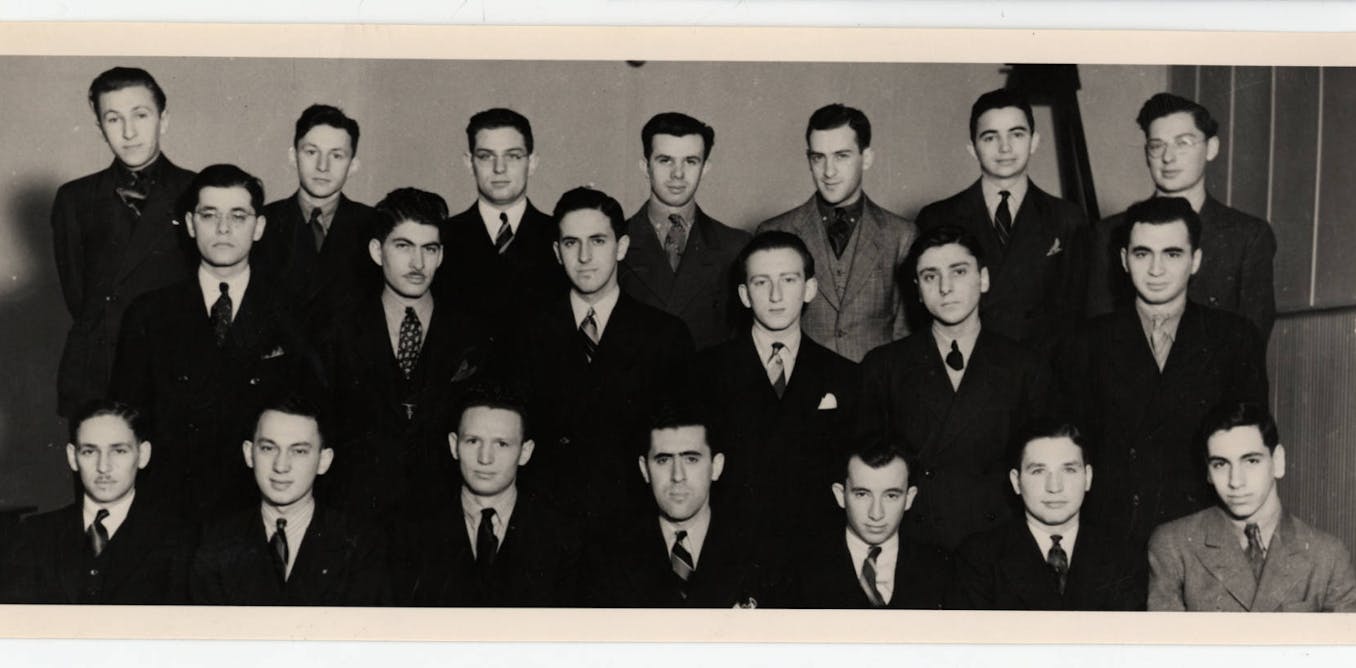
 Education1w ago
Education1w agoCampuses are ground zero in debates about antisemitism − but that’s been true for 100 years
-

 Education1w ago
Education1w agoSocioeconomic status explains most of the racial and ethnic achievement gaps in elementary school
-

 Education1w ago
Education1w agoMothers, metaphors and dyslexia: What language reveals about the challenges of a child’s learning disability
